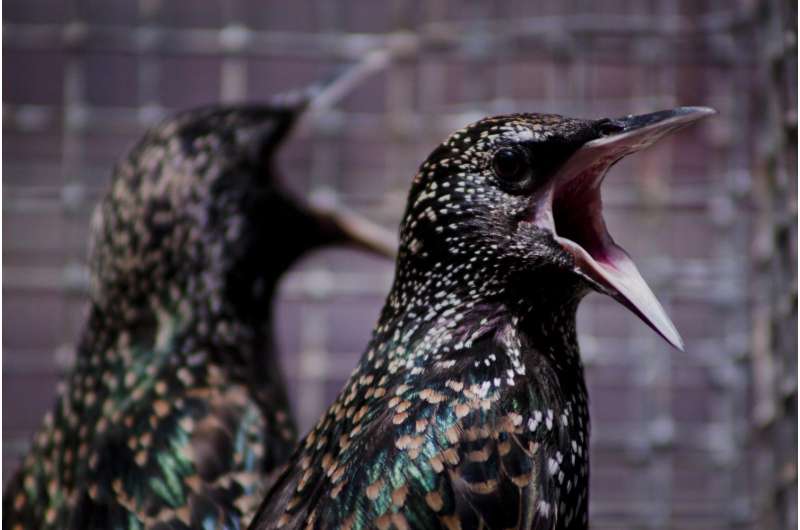Molting feathers may help birds deal with environmental contaminants

Mercury is a ubiquitous environmental contaminant that affects the health of birds and other wild animals. Two varieties of songbird—zebra finch and European starling—were found to shed mercury accumulation with their feathers in a recent study.
During a molt, both species quickly eliminated mercury from their blood and significantly reduced mercury concentrations in other tissues. This, coupled with a migration out of contaminated sites, may help birds deal with exposure to environmental toxins.
"It came as no surprise that feather molt accelerated the mercury elimination, but we did not expect the rates to differ so markedly from the non-songbird species that have been studied previously. Understanding species differences as well as how molt contributes to mercury elimination can improve risk assessments," said Margaret Whitney, co-author of the Environmental Toxicology & Chemistry study.
More information: Environmental Toxicology & Chemistry , DOI: 10.1002/etc.3888/full
Provided by Wiley




















